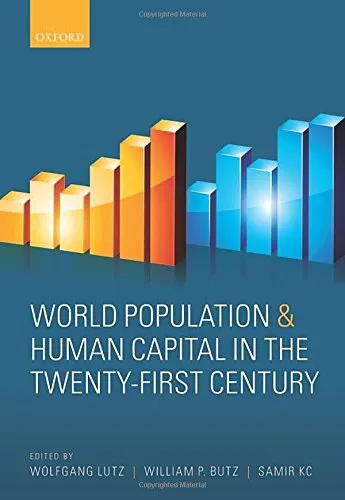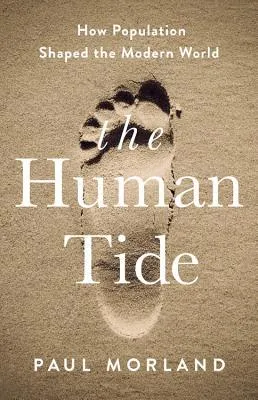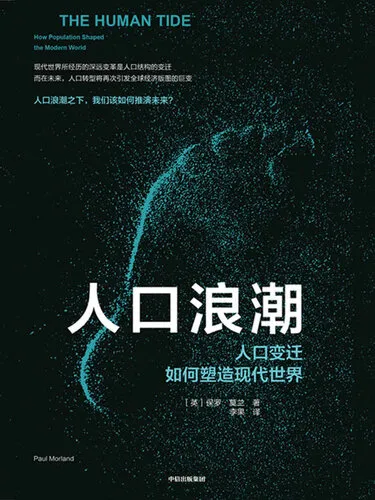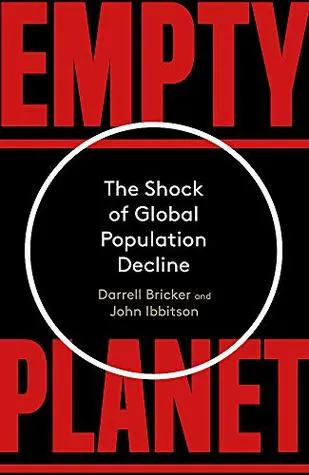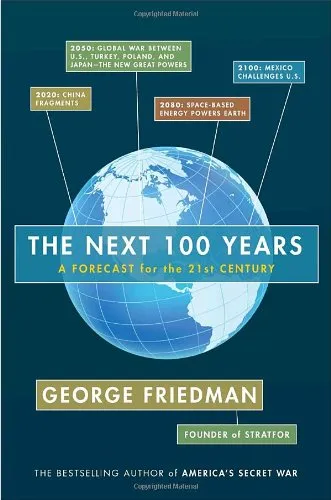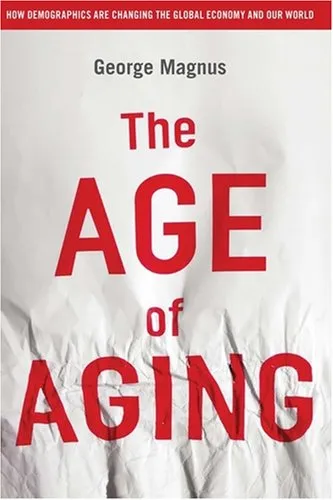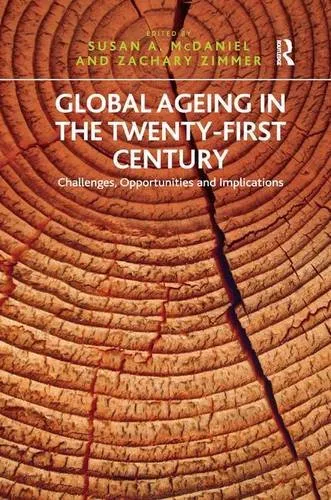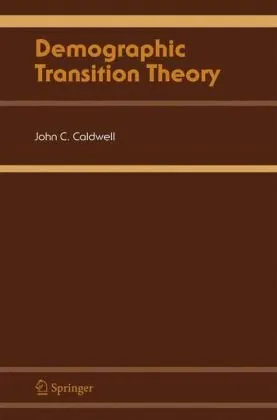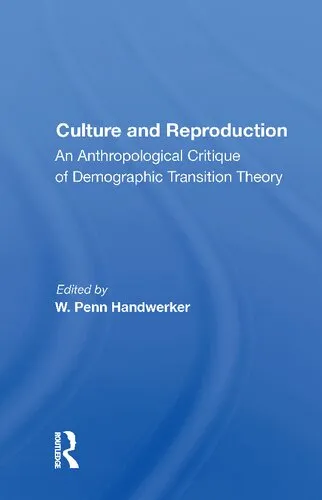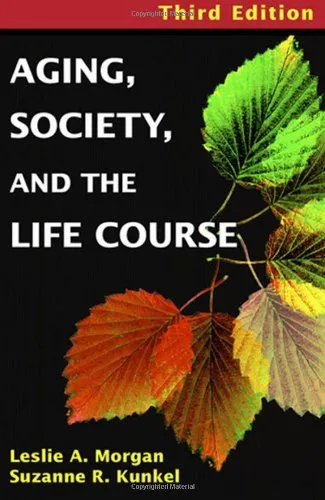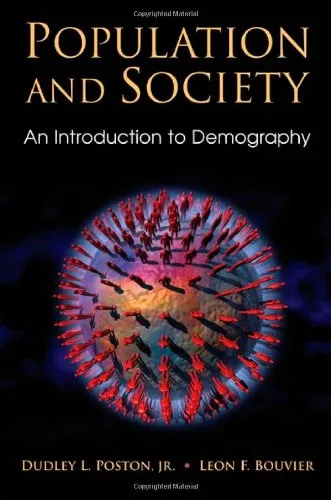World population and human capital in the twenty-first century
4.0
بر اساس نظر کاربران

شما میتونید سوالاتتون در باره کتاب رو از هوش مصنوعیش بعد از ورود بپرسید
هر دانلود یا پرسش از هوش مصنوعی 2 امتیاز لازم دارد، برای بدست آوردن امتیاز رایگان، به صفحه ی راهنمای امتیازات سر بزنید و یک سری کار ارزشمند انجام بدینکتاب های مرتبط:
معرفی کتاب
کتاب World Population and Human Capital in the Twenty-First Century تلاشی است برای درک و تحلیل جامع از روندهای جهانی جمعیت و سرمایه انسانی و تاثیرات آنها در قرن بیست و یکم. این کتاب به رهبری ویرایش های ولفگانگ لوتز، ویلیام پی. بوتز، و سمیر کی سی، محققان و متخصصانی را گرد هم آورده است که به بررسی جنبههای مختلف پویاییهای جمعیت و سرمایه انسانی، از جمله نقش آموزش و اثرات زیستمحیطی پرداختهاند.
خلاصهای دقیق از کتاب
در این کتاب، نویسندگان تلاش میکنند تا با استفاده از مدلهای پیشبینی، سناریوهای گوناگونی را برای رشد جمعیت جهانی و سطح سواد و دانش بشری در آینده ترسیم کنند. با توجه به چالشهای اقتصادی، اجتماعی و زیستمحیطی که جوامع جهانی با آن مواجهاند، این کتاب به بررسی راهکارهایی برای بهرهبرداری بهینه از سرمایه انسانی میپردازد. محور اصلی کتاب بر اهمیت آموزش و پرورش برای رشد پایدار و هماهنگ با نیازهای جهانی تأکید میکند.
نکات کلیدی
- تجزیه و تحلیل روندهای جهانی جمعیت از منظرهای اقتصادی، اجتماعی و زیستمحیطی.
- نقش حیاتی سرمایه انسانی و آموزش در توسعه پایدار جامعه جهانی.
- ارائه سناریوهای پیشبینی برای آینده جهانی بر اساس مدلهای آماری و دادههای موجود.
جملات مشهور از کتاب
"Education is the most powerful tool for shaping the future of society."
"Understanding population dynamics is key to addressing global challenges."
اهمیت این کتاب
با توجه به نقش حیاتی جمعیت و سرمایه انسانی در شکلدهی آینده جهان، این کتاب ابزاری ضروری برای سیاستگذاران، پژوهشگران و دانشجویان است که علاقهمند به درک روابط پیچیده میان توسعه جمعیت و سرمایه انسانی هستند. تحلیلهای جامع و دیدگاههای نویسندگان به ارائه استراتژیهایی میپردازند که میتوانند به مدیریت بهتر منابع انسانی و محیطی منجر شوند.
Introduction
Welcome to a comprehensive exploration of "World Population and Human Capital in the Twenty-First Century," a transformative book that delves into the critical interplay between demographic change and human capital development that will shape the future of global society. Authored by Wolfgang Lutz, William P. Butz, and Samir KC, this book is a rigorous scholarly resource offering a profound understanding of the dynamics that will govern population movements and educational advancements in the coming decades.
A Detailed Summary of the Book
The book provides an in-depth examination of the relationship between population dynamics and human capital, emphasizing the significance of education. It introduces innovative forecasting methods and scenarios to explore how different educational outcomes could influence the global population landscape by 2100. The authors highlight the impact of educational attainment on fertility rates, mortality, and migration patterns, proposing that human capital should be considered as important as traditional demographic variables like fertility and mortality in shaping future population structures.
Through a series of global and regional case studies, the book illustrates the potential pathways and challenges societies may face. The text argues that improved education systems and policies are pivotal for adapting to demographic changes including aging populations and fluctuating birth rates. With comprehensive data analysis and projections, the authors present a body of work that underscores the necessity of investing in education for both social and economic development.
Key Takeaways
- The interplay between education and demographic change is crucial for future planning.
- Investment in human capital development can significantly affect population outcomes.
- Policy interventions in education are required to address challenges posed by aging populations.
- Accurate forecasts of population changes necessitate the inclusion of human capital dimensions.
- Countries need tailored strategies for demographic and educational transformations.
Famous Quotes from the Book
"Education is the most powerful leveler of socio-economic disparities in society."
"Understanding population dynamics requires looking beyond simple birth and death rates to the quality of human capital."
"Investments in education today are direct investments in the future demographic resilience of societies."
Why This Book Matters
In a rapidly changing world, the need to understand and predict global population trends and their socio-economic impacts has never been more critical. "World Population and Human Capital in the Twenty-First Century" stands as a crucial reference for policymakers, educators, and researchers. Its innovative approaches to forecasting population dynamics through the lens of human capital provide invaluable insights for preparing and adapting to future challenges.
The book's emphasis on education not only as a demographic variable but as a transformative power for societies, marks it as an essential reading for anyone involved in strategic future planning across numerous sectors. By offering a comprehensive view of the potential global futures shaped by population and education, it serves as a foundational text for addressing the sustainable development goals related to education, economic growth, and social equity.
دانلود رایگان مستقیم
شما میتونید سوالاتتون در باره کتاب رو از هوش مصنوعیش بعد از ورود بپرسید
دسترسی به کتابها از طریق پلتفرمهای قانونی و کتابخانههای عمومی نه تنها از حقوق نویسندگان و ناشران حمایت میکند، بلکه به پایداری فرهنگ کتابخوانی نیز کمک میرساند. پیش از دانلود، لحظهای به بررسی این گزینهها فکر کنید.
این کتاب رو در پلتفرم های دیگه ببینید
WorldCat به شما کمک میکنه تا کتاب ها رو در کتابخانه های سراسر دنیا پیدا کنید
امتیازها، نظرات تخصصی و صحبت ها درباره کتاب را در Goodreads ببینید
کتابهای کمیاب یا دست دوم را در AbeBooks پیدا کنید و بخرید
